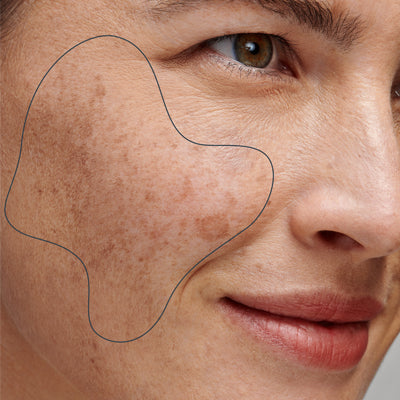Introduction
Welcome to this article about sun and skin. The sun is an essential part of our lives and has many positive effects on our health. However, sun exposure can also be harmful to our skin. In this article we will discuss how the sun affects the skin, the risks of sun exposure, and important tips for protecting your skin. Let's start!
What is sun and skin?
Our skin is the largest organ of our body and plays a crucial role in protecting our internal system. Sunlight consists of different types of radiation, including ultraviolet radiation (UV radiation). This radiation can have both positive and negative effects on our skin, depending on the level of exposure.
How does the sun affect the skin?
When our skin is exposed to the sun, the UV rays penetrate into the deeper layers of the skin. This can lead to various effects, including burning, premature aging, pigmentation problems and even skin cancer. It is important to be aware of these effects and take measures to protect the skin.
Risks of sun exposure
Prolonged sun exposure without proper protection can lead to serious health problems. Here are some of the risks associated with excessive sun exposure:
1. Sunburn
Sunburn is a common problem that occurs when the skin is exposed to too much UV radiation. It causes redness, pain and peeling of the skin. Repeated sunburn can damage the skin and increase the risk of skin cancer.
2. Premature aging
UV radiation can damage the production of collagen and elastin in the skin, leading to premature aging. This results in wrinkles, fine lines and sagging skin.
3. Pigmentation problems
Sun exposure can lead to hyperpigmentation, where areas of the skin darken. This can result in age spots, freckles and melasma.
4. Skin cancer
Skin cancer is one of the most common types of cancer, and excessive exposure to UV radiation is a major risk factor. It is essential to check the skin regularly for suspicious spots and limit further sun exposure.
How to protect the skin from the sun
It is vital to protect the skin from the harmful effects of the sun. Here are some important tips for doing this:
1. Sunscreen and SPF
Using sunscreen with a broad spectrum SPF (Sun Protection Factor) is essential. Apply liberally to all exposed skin and repeat every two hours, especially if you sweat a lot or have been in water.
2. The importance of hydration
Sun exposure can dry out the skin, so hydration from within and without is important. Drink plenty of water and use moisturizing creams to keep the skin hydrated.
3. The relationship between sunlight and vitamin D
Sunlight is an important source of vitamin D, but excessive exposure can be harmful. It is advisable to spend a few minutes in the sun every day without sunscreen, but avoid prolonged exposure during peak hours.
4. Safe sunbathing
If you want to enjoy the sun, do so safely. Find shady areas during peak hours, wear protective clothing such as a hat and sunglasses, and use sunscreen.
Care of the skin after sun exposure
After exposure to the sun, it is important to take good care of your skin. Here are some tips to soothe and repair your skin:
1. Cooling
If you are sunburned, use cool compresses or take a lukewarm shower to cool the skin.
2. Hydration
Apply a moisturizer to keep your skin hydrated and promote recovery.
3. Avoid further sun exposure
Try to avoid direct sun exposure until your skin has fully recovered.
Common skin conditions caused by the sun
Excessive sun exposure can cause various skin conditions. Here are some common conditions:
1. Sun allergy
Some people develop an allergic reaction to sunlight, resulting in a rash, itching and redness.
2. Actinic keratosis
Actinic keratosis are rough, flaky spots on the skin that can turn into skin cancer if left untreated.
3. Melanoma
Melanoma is the most aggressive form of skin cancer and can be fatal if not detected and treated early.
Consult a dermatologist
If you are concerned about the health of your skin or experience symptoms after sun exposure, consult a dermatologist. They can give you the correct diagnosis and recommend the best treatment.
Conclusion
Sun exposure has both positive and negative effects on our skin. It is important to use sunlight responsibly and take the right precautions to protect the skin. Remember to use sunscreen, moisturize your skin and avoid excessive sun exposure. Take good care of your skin, because it is a precious organ that deserves our protection.





